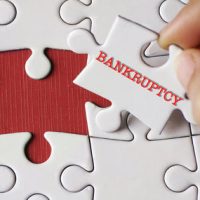How Does Bankruptcy Stop Vehicle Repossession?

The repossession threat is real. Legally, banks or other lenders can begin the repossession process after only one missed payment. Usually, these companies electronically disable vehicle ignition even earlier than that.
There’s more bad news. Since pandemic lockdowns ended, a combination of high gas prices, job cuts, high vehicle prices, and overall high inflation have doubled the vehicle repossession rate.
But the news isn’t all bad. As outlined below, a Chicago bankruptcy lawyer not only stops the repossession process dead in its tracks. An attorney also uses obscure legal doctrines, as well as court-supervised negotiations, to make vehicles more affordable in the long term.
For most people, bankruptcy is a last resort. In some cases, that’s an effective approach. But if you’re behind on vehicle payments, you have little time to act, as mentioned above. Repossessions are relatively easy to stop, if the debtor files bankruptcy. Repossessions are almost impossible to undo, even if the debtor files bankruptcy.
Repossession
When debtors file voluntary petitions, the Automatic Stay in Section 362 of the Bankruptcy Code usually stops creditor adverse actions, such as:
- Repossession,
- Wage garnishment,
- Foreclosure,
- Creditor lawsuits, and
- Eviction.
Section 362 is only effective if the proper party receives actual notice of the filing. This requirement is often a technicality, but in vehicle repossession matters, notice is tricky.
Usually, multiple companies are involved, such as the lender, the loan servicer, a towing company, and an auctioneer. All companies must receive notice. If the servicer tells a tow company to seize the vehicle and a Chicago bankruptcy attorney files a petition on behalf of the debtor, the servicer does not have a legal obligation to rescind that order.
Giving proper notice usually requires some homework. Generally, debtors deal with the lender and loan servicer. But the towing company and auction company are unknown. Our team knows the players, as well as the game.
Generally, the Automatic Stay is effective until the judge closes the case. However, in some situations, creditors can obtain special judicial permission and bypass the Automatic Stay. Fortunately, judges usually only grant such permission if the debtor threatened the collateral (e.g. I’m going to drive the car into a lake). The amount of delinquency usually isn’t relevant, even if the debtor is several months behind.
Restructuring
Despite the Automatic Stay, if the debtor wants to keep the vehicle, the debtor must continue making payments. That’s the way of the world. Legally, bankruptcy cancels all existing payment agreements. So, the debtor and creditor must make a new agreement. An attorney helps ensure the new terms are favorable to the debtor.
These new terms often include a lower interest rate, partial UPB (unpaid principal balance) reduction, or payment deferral. Banks know the score. They know if they don’t make a favorable deal, debtors will allow repossession, leaving them with little or nothing.
If a lawyer cannot informally negotiate a good deal, a lawyer general files a motion to mediate the dispute. During mediation, both sides have a duty to negotiate in good faith. “Take it or leave it” is not a good faith negotiating position. Instead, the bank must compromise and agree on an out-of-court settlement, if at all possible.
Rely on a Diligent Cook County Lawyer
No matter what kind of financial problem you are having, bankruptcy could be a way out. For a free consultation with an experienced bankruptcy attorney in Chicago, contact the Bentz Holguin Law Firm, LLC. We routinely handle matters throughout the Prairie State.
Source:
abc11.com/cars-repossessed-inflation-economy-job-cuts/12755028/


